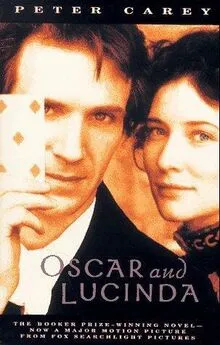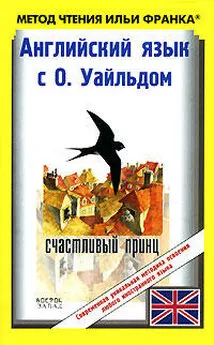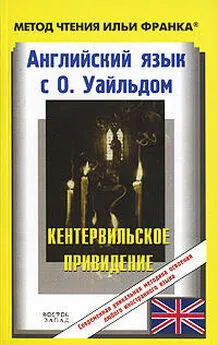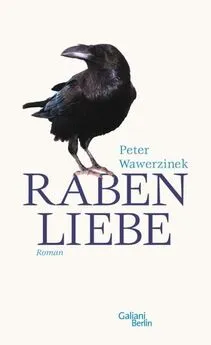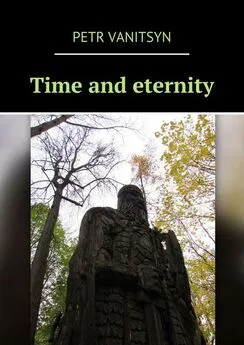Peter Carey - Oscar and Lucinda
- Название:Oscar and Lucinda
- Автор:
- Жанр:
- Издательство:Vintage Books
- Год:1988
- Город:New York
- ISBN:0-679-77750-4
- Рейтинг:
- Избранное:Добавить в избранное
-
Отзывы:
-
Ваша оценка:
Peter Carey - Oscar and Lucinda краткое содержание
The Booker Prize-winning novel-now a major motion picture from Fox Searchlight Pictures.
This sweeping, irrepressibly inventive novel, is a romance, but a romance of the sort that could only take place in nineteenth-century Australia. For only on that sprawling continent-a haven for misfits of both the animal and human kingdoms-could a nervous Anglican minister who gambles on the instructions of the Divine become allied with a teenaged heiress who buys a glassworks to help liberate her sex. And only the prodigious imagination of Peter Carey could implicate Oscar and Lucinda in a narrative of love and commerce, religion and colonialism, that culminates in a half-mad expedition to transport a glass church across the Outback.
Oscar and Lucinda - читать онлайн бесплатно полную версию (весь текст целиком)
Интервал:
Закладка:
"Come on, Odd Bod, we will be just in time to see them in the paddock." They ran then, Wardley-Fish in front. He had big buttocks and thick thighs. Oscar could imagine him sitting on a horse. He ran heavily, but quickly. Oscar came behind with his knees clicking painfully, his borrowed coat flapping around him, and was-with his wild red hair in its usual unruly state-such a scarecrow that some aging Mohawks called out after him. He did not mind. He was intoxicated.
This intoxication was quite different from Wardley-Fish's. Oscar had no guilt at all. He knew that God would give him money at the races and thereby ease the dreadful burden that the Strattons had placed upon themselves. Now they would be released. God would do this just as He had told Moses to divide the land among the tribes of Israel: "According to the lot shall the possession thereof be divided between the many and the few." The Almighty would be Oscar's source of
"information."
"Look at her," said Wardley-Fish when Madding Girl was brought into the ring. Madding Girl was in a lather of sweat. It had a white foam inside its hind legs. The horse showed a peculiar look in its eye.
"Look at her," said Wardley-Fish. He took Oscar by the coat sleeve and dragged him so quickly forward that Madding Girl reared, danced sideways, turned, and then backed back, perhaps deliberately, towards them so they had to step back into the whiskered crowd or else have their feet crushed.
"Look at the backside," said Wardley-Fish.
It was difficult to avoid it.
"That, Odd Bod, is the first thing to look at in a horse, and when the track is wet, it's a day for a powerful bum like that one."
I
Epsom Downs
Oscar remembered how lonely and lacklustre he had felt this morning. He had been cold, and miserable. Now he was warm inside Wardley-Fish's coat. He was a boy comforted by the sweetsour wrappings of a larger man, the tweed-prickly armour of an elder brother, uncle, father. He was "looked after" and was content-in the mud of Epsom-as a dog curled inside an armchair. He grinned at Wardley-Fish.
"See. You have caught the germ," said Wardley-Fish who saw in the grin the symptoms of his own hot condition. "You should not be here. I am corrupting you." But Oscar did not feel at all corrupted. God had already spoken to him. Sure Blaze would win this race. Tonight he would have the money to pay his buttery account. He would buy long woollen socks and send two guineas and some coffee to Mr and Mrs Stratton. Perhaps he could open an account at Blackwell's. He would like to purchase his own copy of Mr Paley's Evidence.
"Look at you," said Wardley-Fish. "You look like a grinning scarecrow." Oscar frowned. He had no sense of humour about his appearance. In fact he never had any real idea of it. He thought himself "quite plain and average" in build and physiognomy, and as for clothes, he now imagined himself quite reasonably, if humbly, dressed.
"Of course," he said at last, "I am wearing your coat. Doubtless it creates an odd effect." Wardley-Fish looked at the Odd Bod's wild red hair, his neat triangular face, his earnest prayingmantis hands clasped on his breast and-just when he began to laugh-saw that Oscar was not joking. The Odd Bod imagined himself quite normal.
When they pushed through the crowd towards the paddock, Wardley-Fish was still laughing. He could not stop himself. He laughed while he made his bets. Oscar watched him, smiling. He thought the laugh to do with betting. Wardley-Fish placed his bets in total disregard for the system, going from bookmaker to bookmaker, laying everything on Madding Girl with tears streaming down his face.
My great-grandfather watched him long enough to see how a bet was made and then, selecting Perce Gully, he laid three guineas on Sure Blaze at 9–1.
My great-grandfather won his first bet. In the case histories of pathological gamblers you find the same story told time and time again.
3 °Covetousness
When Mr Stratton entered the comfortable rooms of his Oxford friends-and he was better connected than you would think, and better liked than yo^ might imagine-he was like a dog in front of a fire, having crawled ihto a chair it knows forbidden it, but lying there anyway, farting, whizing, affecting deafness. How he loved Oxford. How he loathed Hennacombe. How cruel was the contrast between them. He did not think his distinguished friends any better than himself. He drank their brancty with a clear conscience. He ate like a horse and allowed himself to accept small "loans"-a crown or two, nothing substantial, although Mr Temple liked to claim it would have been sufficient for an Oxford mansion had Stratton not frittered it all away on train tickets. Once he hiad been differentiated from his friends by his tendency towards High Seriousness. Now he was "poor Stratton" and they made the little loans as imarks of gratitude, that it was he, not they, who had allowed himself lto be mired in Devon by means of an unfortunate marriage-for it vvas Betty Stratton (the daughter of the controversial don) whom they blamed for the poor chap's predicament.
Hugh Stratton iwas not an Oxford Scholar but was a Scholar of Oxford. And as lonelly civil servants in Hong Kong may know more about the goings on in Knightsbridge than anyone who really lives there, so it was with Hutgh Stratton and Oxford. When he brought Oscar up to undergo his interview with Hawkins (the Provost of Oriel) he was also able to bring the news of a certain controversy about the election of Merton Fellowss/ which had travelled to Hennacombe more quickly than it had acros$s the slippery red cobbles of Merton Street. Yet for all this inntimacy with Oxford and its colleges, Hugh Stratton felt himself cast oi)ut. He could not so much as enter the echoing gatehouse of Oriel, coould not even glimpse the lovely bright grass of the front quad, withoout thinking, "I cannot stay." He emerged int
Covetousness
looking down on him. His shabby clothes proclaimed him a poor clergyman with no place here. He had red mud caked on his trouser turnups and the gentlemen of Oriel, encountering him as he cut across to the chapel, averted their eyes from him, but not so much, he imagined, as not to note the fine red capillaries that had begun, just this year, to show on his nose and cheeks. When he brought Oscar through these portals he stopped him here, in the middle of the path across the quad, to tell him that he was jealous of him. But as he did it with a wistful smile upon his face, Oscar had no way of guessing the extent of it. The young man understood him as he might understand any older man pining for his youth. He did guess the jagged edges of this jealousy which had lacerated Hugh Stratton, more on every day that passed, none more than at this moment when they stood inside the quad. One would stay. One would be cast out. But jealousy was not the only serpent stirring the muddy waters of Hugh Stratton's unhappy soul. He could attempt to lay it by admitting it, but the other he could not even admit-the dreadful guilty truth was that he had made no provision for the cost of this education. When his wife had raised the question he had waved his handkerchief as if it were nothing but a march fly to be sent away. "I have told you. He can be a servitor."
"But have you written to Hawkins on the matter?"
"I would not pester the Provost with such a matter."
"Then pester Temple or Fisher, but pester someone, dear Hugh, don't you think you should?" He never did it and now he found there was no possibility of Oscar paying his way by taking a servitor's position. Oriel already had enough young men who must, if not sing, then wait a table for their supper. If Oscar was to be a servitor he must wait his turn. In the meantime the bursar was assuming that the Strattons would foot the bill. Mr Stratton had not enlightened him, but it was out of the question. So when Hugh Stratton, continuing his interrupted walk across the rainbright quad, led his protégé into that lovely little vaulted chapel where he nad once-fair-haired, apple-cheeked-been so admired for the purity °f his voice, he was not merely miserable with jealousy, teetering on the edge of grief, but also guilty about this financial matter, a thing he should not, so he felt, have to be guilty about at all. He had inended to take Oscar on a grand tour, a three-hour event he had, when Imagining it, expected to be a pleasant experience for both of them.
ut now he had a blinding headache and he turned back at the door
Oscar and Lucinda
to the library and bade his protégé good bye and good luck.
To Oscar, Mr Stratton's moods would always be a mystery, so much so that he had ceased to try to fathom them. He knew that his mentor had planned to dine with his friend Mr Temple, but now, it seemed, he was going to the railway station. It had begun to rain again.
"Your father must take responsibility," the clergyman told Oscar as they sheltered in the gatehouse. "He cannot go scot-free."
Theophilus, unlike Oscar, would have the benefit of a full revelation of Mr Stratton's thoughts on this matter, but he would not pay a penny towards sending his only son into the everlasting hellnre, and said so, plainly, not only to the pinched and put-upon clergyman, but also (in a passionate letter) to his son whom he implored to flee before it was too late. So it is in this context that one must understand the delivery of the coffee (the gift from Oscar after Sure Blaze's victory) to the vicarage at Hennacombe. Never have eight ounces of coffee produced such an electric effect upon a constitution. Not four days after the fragrant little parcel had its twopence worth of stamps pasted on its smudged face but Oscar, looking out of his window and down into the St Mary's Hall quadrangle before sitting down to his breakfast, saw none other than his patron, fastened up in his long black coat, limping (an accident with an axe) but limping quickly in the direction of Oscar's staircase.
He thought: my papa is dying. And indeed so convinced was he that his greatest fear (that his father would die without their reconciliation) had become a reality that he began immediately to fetch his big brown suitcase out from its hiding place in the window seat. He had this in his hand when he answered the Reverend Mr Stratton's sharp, beak-like knock.
The Reverend Mr Stratton had one of those faces that take some time to arrange themselves for the business of the day. In the mornings he could be expected to look tired and irritable. His colour, at this hour, was normally poor; his skin had no tone; the folds of his face — thin vertical lines like surgeons' scars on either side of his mouth-were deeper, more pronounced. But on this morning his face was ahead of itself-it was flushed and tight, and the eyes had all the secret life (and yet none of the wateriness) they normally took from a sherry bottle. He did not say good morning, or explain how it was he happened to be in Oxford at that hour. Rather he took the empty suitcase from Oscar's hands, seemed surprised at its lightness, and then put it down
inn
Covetousness
outside the door. He had no "intention" in this, unless it was that, in the midst of his confusion at being greeted by a young man holding a suitcase and, finding the suitcase empty, he judged the thing ready for the boxroom and put it in the passage where the scout might attend to it, although if this was what he thought, he did not know he thought it-his mind was aswim with imagined conspiracies; there was no room for a suitcase.
Читать дальшеИнтервал:
Закладка:
